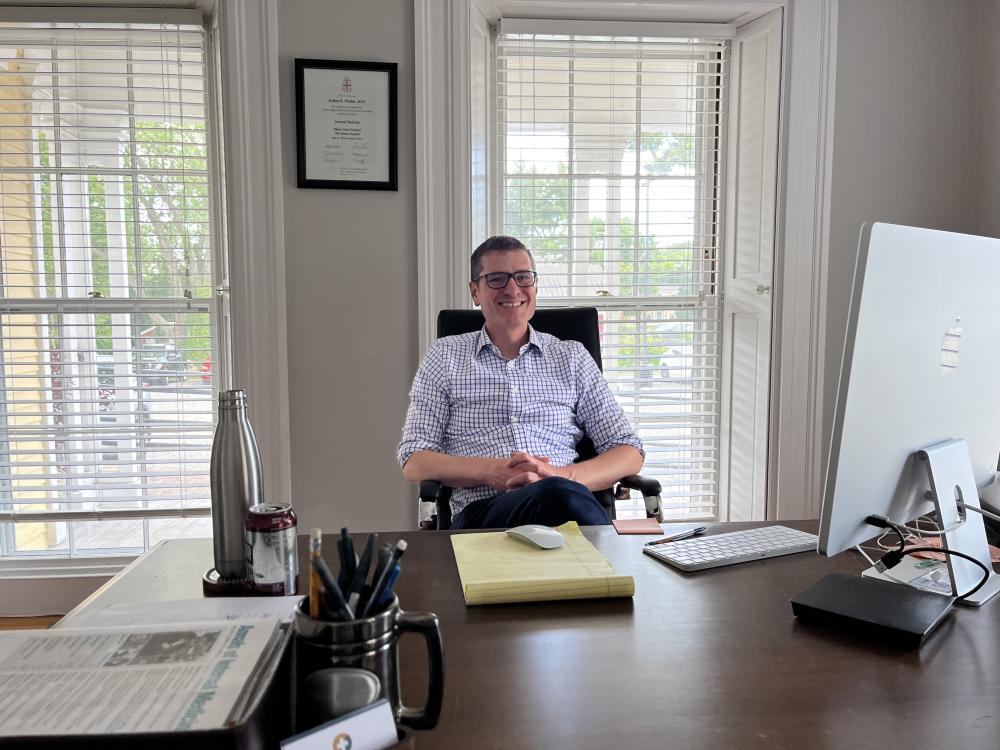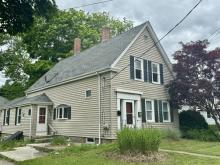Doctor recreates the feel of ‘small town’ medicine in Marion
MARION — The same week Joshua Fischer bought a house in Marion, his Providence-based group practice was bought out by a larger hospital system.
Over time, doctors in the practice began to have less autonomy. There were more rules. Things became bureaucratic. And Fischer was commuting more than 40 minutes each day into it all.
Fischer explored jobs closer to Marion, though he didn’t want to switch to yet another big corporate setting, a place where he would be just another cog.
Earlier this year, Fischer opened a direct primary care practice in Marion.
“I thought, if I'm going to sort of throw a bomb into my career in the middle and blow it up and rebuild it, let me just do something totally different that I actually would be passionate about doing,” Fischer said.
The practice occupies a corner of the Captain Hadley House at the intersection of Route 6 and Front Street — “what doctor's offices used to look like,” Fischer said.
“I'm a little bit consciously trying to recreate the feel of what medicine looked like in a small town 50 years ago,” he said.
Fischer’s practice is a family, homey business. His wife Evelyn is the office manager.
At his previous practice, Fischer had 2,000 patients, he said. At the Marion practice’s max, he’ll have a tenth of the patients. It allows Fischer to text with patients throughout the day. Or if a patient calls, he can see them later that very day. Fischer said he recently sat down with one patient for two hours.
Crucial to the practice is its direct primary care model. Fischer’s business operates on a flat membership fee rather than accepting medical insurance.
“I think what I'm doing is very different than what people are used to,” he said.
Well before Fischer settled into Marion, before he went to medical school at Brown University, he was a freshman walking into the first day of Chemistry 101 at SUNY Binghamton. It was a moment he said he’ll never forget.
The professor, exhausted, asked how many of the 800 students in the lecture hall were pre-med. Nearly everyone raised their hand, according to Fischer.
The professor broke it down; there weren’t enough seats in medical school, and only about 40 of the students would be receiving A’s.
“‘I'm just telling you how it is,’” Fischer recalled the professor saying. “‘And if you don't like it, and you're not prepared to spend every minute of the next four months in the library studying, just do us both a favor and drop the class.’ So I went and I dropped the class.”
Fischer would get a degree in history then worked in information technology. Eventually, he decided he was ready. He took pre-med classes in his late 20s and began medical school on his 30th birthday, Fischer said.
Medicine appeals in part to that background. Fischer said central to the craft is talking to people to get stories, like a historian would do, with a layer of science and troubleshooting.
“I enjoy hearing people's stories and getting to know them, and I enjoy helping them troubleshoot problems in their life and figure out how to get them healthier,” he said.


















